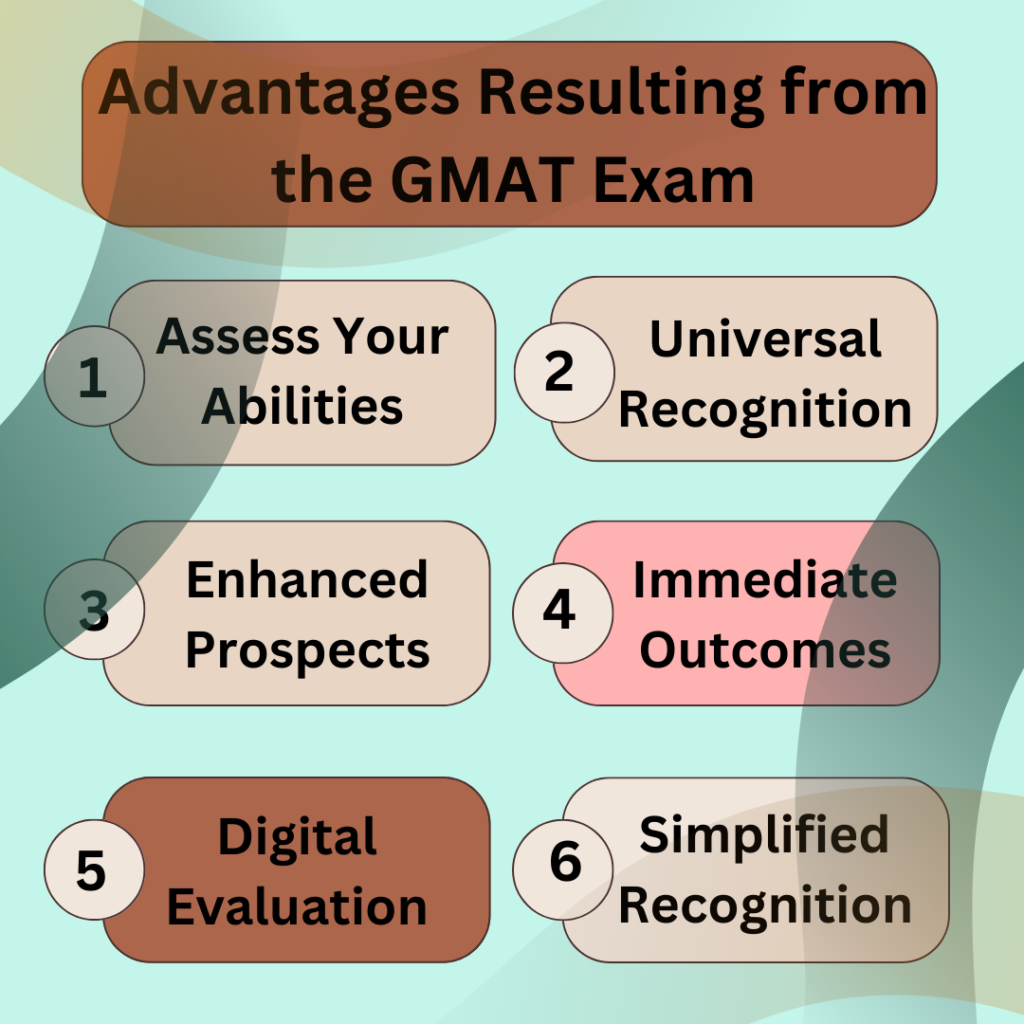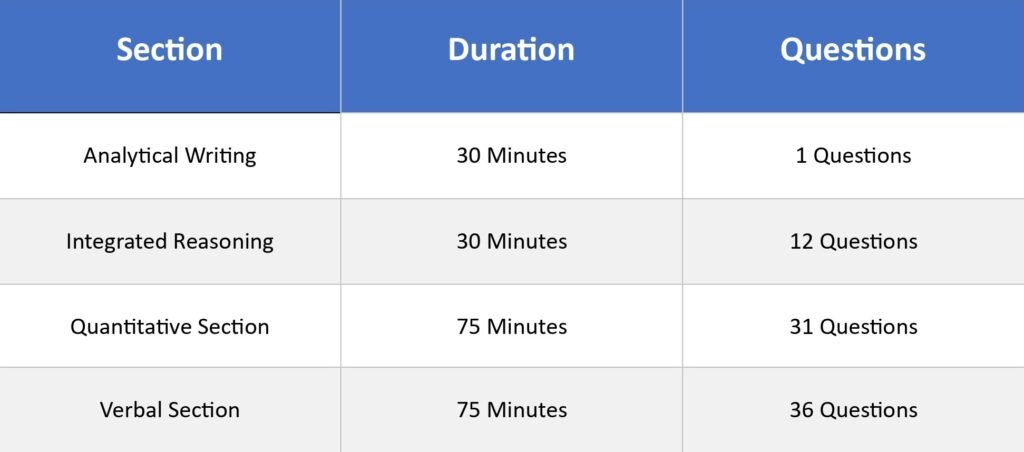
Telangana.India
Send an e-mail
Call Us Now
The Graduate Management Admission Test (GMAT) is a computer adaptive examination designed to assess candidates’ analytical, writing, quantitative, verbal, and reading abilities in the English language. It serves as a gateway for admission to graduate management programs, including the MBA Program.
Administered by the Graduate Admission Council, GMAT is a registered trademark under its control. The test is specifically crafted to evaluate skills crucial for success in business and management programs.

Global Recognition: The GMAT is accepted by over 7,000 MBA and Master’s programs worldwide, including renowned institutions such as Harvard, Stanford, and Wharton. This broad acceptance highlights the test’s credibility and importance for applicants seeking advanced business education.
Standardized Benchmark: As a standardized assessment, the GMAT provides a level playing field for candidates from diverse educational and professional backgrounds. It enables admissions committees to evaluate applicants on a common scale, ensuring fairness in the selection process.
Skills Assessment: The GMAT focuses on critical skills essential for success in business school and beyond, including critical thinking, problem-solving, and data analysis. These competencies are vital for navigating complex business challenges and making informed decisions in a fast-paced environment.
Scholarship Opportunities: A high GMAT score can significantly enhance an applicant’s chances of receiving scholarships and financial aid. Many business schools consider GMAT scores as part of their scholarship criteria, making strong performance on the test a strategic advantage for prospective students

There are no strict eligibility criteria for taking the GMAT; anyone can register regardless of educational background or age. However, it is typically required for admission to graduate business programs, so candidates should have completed an undergraduate degree or be in the process of completing one. Additionally, some institutions may have specific requirements, so it’s advisable to check with individual schools.
A competitive score varies depending on the program you’re applying to, but generally 600+ is considered good.
3-6 months is recommended, depending on your starting score and desired score.
Official GMAT materials, prep courses, practice tests, and online resources are available.
Yes, you can retake the test up to five times within a 12-month period.
There are currently three sections in the GMAT test:
The GMAT exam previously had an Analytical Writing Assessment (AWA) section, but it was removed in April 2018. So, while some resources might still mention four sections, the current format only has three.
When heading to the GRE test center, you’ll need to ensure you have the following documents ready:
Essential Documents:
Additional Recommended Documents:
Important Tips:
Identify Your Learning Style: Choose study materials and resources that match your preferred learning style, whether visual, auditory, or kinesthetic, to enhance understanding and retention.
Set a Budget: Determine your budget for study materials and stick to it, exploring various options that fit within your financial plan.
Read Reviews: Before selecting any resource, take the time to read reviews from other students to gauge the effectiveness and quality of the materials.
Compare Options: Explore and compare different study resources, such as online courses, books, and tutoring services, to find the best fit for your needs.
Munu International stands out as a prominent consultancy specializing in global education, committed to guiding Indian students in realizing their academic ambitions on the international front. Our resolute dedication to excellence and an enduring enthusiasm for education have established us as a reliable partner in helping students pursue their overseas study dreams.
Flat no:101, First Floor, Ameer Estate,
beside S.R. Nagar Bus stop, Ameerpet, Hyderabad-500038
Opp.Metro Pillar -1038
Copyright © 2023, All Rights Reserved By Munu International | Powered by Sky High Digitals